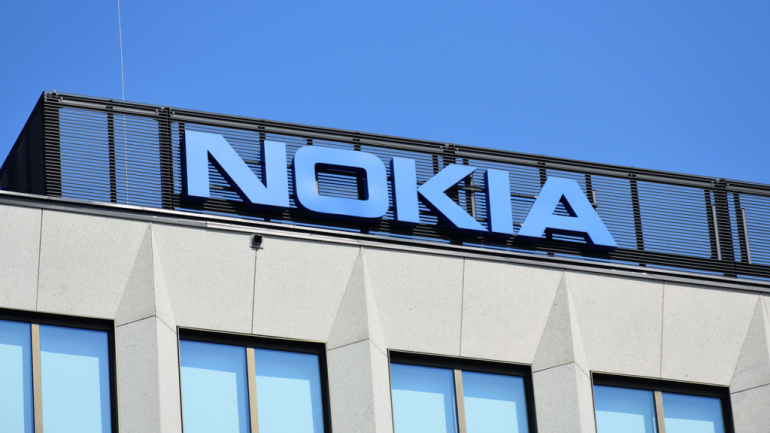India’s recent 5G spectrum auction concluded with disappointing results, generating significantly less revenue than anticipated. The auction ended after only seven rounds, raising INR113 billion ($1.35 billion), a stark contrast to the INR960 billion ($11.49 billion) reserve price set by the government.
T-Mobile US and Verizon are reportedly in talks to acquire UScellular, with negotiations underway to divide the telco’s assets between them. According to sources cited by the Wall Street Journal, both major mobile network operators (MNOs) are strategizing separate deals to secure portions of UScellular’s operations.
Initiated by the UK government, the Shared Rural Network (SRN) aims to eradicate coverage black spots and ensure widespread 4G coverage. This project has been approached with differing bravado by top network operators. Juncture tensions arise as key operators plead for deadline leniency, while EE stands confident in its progress. All eyes are on the government’s response to this collective request while interest in the ongoing infrastructure debate climaxes. Stay informed as the narrative unfolds.
Telekom Malaysia partners with rival Maxis to share Radio Access Network infrastructure, significantly boosting its 4G coverage and strengthening its position in Malaysia’s mobile market. This collaboration aims to benefit both companies and customers while fostering innovation and cost-efficiency.
5G rollout challenges prompt MNOs to consider innovative collaboration with neutral host providers, enabling shared infrastructure and accelerated network expansion while navigating cost concerns and growing user demands.
Nokia has launched an app store geared towards mobile network operators in need of automation, as well as those who can provide such services. This initiative is intended to provide the industry with flexibility as networks grow, creating an excellent method for third-party developers to get in front of operators at a time when software-defined networking capabilities are scarce. The Altiplano Application Marketplace, which will provide both Nokia and third-party applications, is named after Nokia’s groundbreaking broadband network controller suite. Seven apps were initially made accessible at launch, but it’s anticipated that this number will increase during the next year as more developers join the platform. The systems are set up according to the Network Support, Network Insights and Network Automation categories. Network Support applications will be used by operators to maintain, troubleshoot and secure fixed networks through proactive monitoring, performance analysis and issue management. Network…
In order to extend mobile service to isolated rural regions, the Belgian communications operator BICS has inked a deal with the satellite-direct-to-phone telecoms business Lynk. This agreement will make it possible for mobile network operators (MNOs) to provide services to subscribers in rural areas in North America, the Caribbean, Latin America, South-East Asia, and a number of rural African regions. BICS focuses on cloud, mobility and IoT, while offering digital communications on a worldwide scale. The company also collaborates with MNOs and mobile virtual network operators (MVNOs). This collaboration aims to solve the problem of remote locations that currently lack any form of mobile connectivity. BICS will use its network to connect the cell carriers with the Lynk satellite constellation. Lynk’s solution enables conventional roaming partner integration without requiring that the mobile operators’ networks undergo hardware or software upgrades, thereby expanding coverage to outlying regions, islands, and…
Hayo Telecom, a Senegalese operator, has chosen Telesmart.io, a worldwide number and messaging service provider, as the provider of its API-enabled number and messaging platform. This is Telesmart.io’s first partnership in the geographic area, and this cooperative venture will help Hayo Telecom service its African consumers more efficiently and effectively. Hayo Telecom has now achieved Dynamic Partner Status as a Telesmart.io partner, giving the company instant access to a number inventory. As contact center, voice and messaging collaboration solutions continue to be in demand, the Telesmart.io inventory management platform for voice and messaging makes it simple to monetize the opportunity in the Communications Platform as a Service (CPaaS) market. The platform may be integrated with Hayo Telecom’s existing business systems as well as Telesmart.io’s “Bring Your Own Numbers” concept to handle all number inventories in one place. Sign-up, connectivity, on-line provisioning, functionality, visibilit, and reporting are all automated…
In conjunction with key local industry experts, BAI Communications, a worldwide communications infrastructure provider, has launched the next phase of its international growth plan with its entrance into Italy. The company’s goal is to deliver neutral host connected infrastructure solutions to one of Europe’s strongest telecoms markets. BAI Italia is the company’s first European business outside of the United Kingdom and Ireland, bolstering its position as a regional leader in 5G and shared infrastructure. BAI Italia will focus on providing low latency and limitless capacity neutral host networks to ensure that Italians can remain connected in congested metropolitan areas. The group’s vast capabilities will be leveraged by the experienced leadership team to design, develop, manage and fund the critical connectivity infrastructure required to advance digital innovation. The organization will expand existing connections with mobile network operators (MNOs), businesses and municipalities to create a future-ready platform that will be…
Procescom, an industry-recognized provider of innovative and customized solutions for telecom technical platforms, has formed a strategic alliance with DIDWW, a global telecoms operator that offers premium quality VoIP communications and SIP trunking services. This cooperation will help Procescom to further advance its telecom solutions that are deployed in both public and private infrastructure. The addition of fully compliant DIDWW voice services will greatly contribute to the use of Procescom’s out-of-the-box connectivity that can be applied by mobile network operators, MNOs or MVNOs of any size. Strategic partnerships and an innovative outlook on business have assisted Procescom in positioning itself as a leading Mobile Virtual Network Enabler with its Procescom MVNE platform. Along with a white-labelled VoIP dialer for iOS and Android, Procescom has made it possible for mobile device industry giants to offer out-of-the-box connectivity to customers. In addition, Procescom’s extensive connectivity portfolio presents a great opportunity to…













